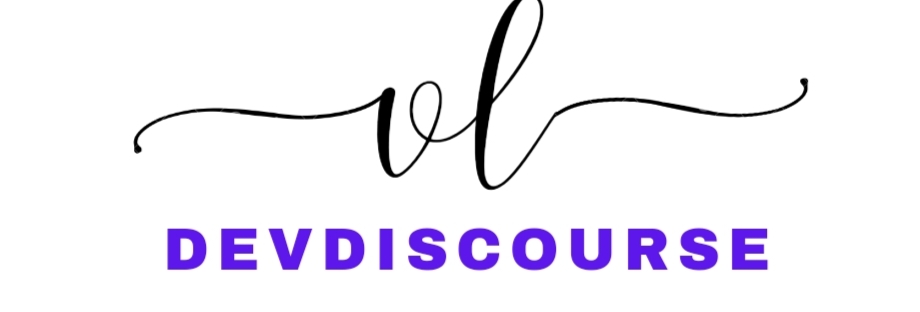Why Experienced Professionals Choose an MBA: Key Benefits and Insight
Introduction to the MBA for Experienced Professionals
For professionals who have already established a career, pursuing a Master of Business Administration (MBA) might seem like a big leap. However, many experienced individuals choose to go back to school to earn an MBA, drawn by the advanced skills, networking opportunities, and career growth potential it offers. In this article, we’ll explore why an MBA is an attractive option for seasoned professionals, the benefits it provides, and answers to common questions for those considering this path.
Why Do Experienced Professionals Pursue an MBA?
Experienced professionals often seek an MBA for the same reasons that fresh graduates do, but their motivations and expected outcomes can differ significantly. Here’s a look at the unique benefits that an MBA offers for those with prior work experience:
Key Reasons Why Experienced Professionals Choose an MBA
- Career Advancement and Leadership Opportunities
An MBA can serve as a catalyst for career progression, especially for those aiming for leadership roles. Experienced professionals who already have a strong technical background can leverage an MBA to gain the managerial and strategic skills needed to lead teams and manage high-level projects. - Enhanced Knowledge of Business Operations
Many professionals find that their industry-specific knowledge lacks a broader understanding of business fundamentals, such as finance, marketing, and organizational behavior. An MBA program provides this holistic perspective, equipping experienced individuals with knowledge that complements their existing skills. - Networking and Connections
One of the major benefits of an MBA is the networking opportunities it provides. Experienced professionals get to connect with peers from diverse backgrounds, faculty with industry expertise, and a powerful alumni network. These connections can open doors to career opportunities and partnerships that may not have been available otherwise. - Entrepreneurial Skills and Business Acumen
For those considering starting their own business, an MBA program offers valuable insights into entrepreneurship. Courses on business planning, funding, market analysis, and operations management give professionals a strong foundation for launching and scaling a business. - Increased Earning Potential
Studies consistently show that MBA graduates earn higher salaries than their non-MBA counterparts. For experienced professionals, this degree can lead to significant salary increases, especially in managerial or executive positions. - Skill Diversification and Specialization Options
MBA programs often allow students to specialize in areas like finance, marketing, or technology management. For experienced professionals, this specialization can be an opportunity to shift career directions or deepen expertise in a particular field.
Benefits of an MBA for Experienced Professionals
1. Transition to Management and Strategic Roles
For professionals who want to move beyond technical or operational roles, an MBA can provide the management training required to handle strategic decision-making and lead teams effectively.
2. Development of Critical Soft Skills
MBA programs place significant emphasis on soft skills such as communication, leadership, and teamwork. For experienced professionals, these skills can be invaluable in navigating complex business environments and managing interpersonal relationships.
3. Broader Industry Insights
Experienced professionals often have in-depth knowledge of their specific industry. However, an MBA exposes them to new sectors and ideas, offering a fresh perspective on business challenges and solutions.
4. Personal Branding and Marketability
An MBA credential enhances a professional’s resume, making them more marketable to prospective employers. It signals a commitment to professional growth and the capability to handle higher-level responsibilities.
Is an MBA Right for Every Experienced Professional?
While an MBA offers numerous benefits, it’s not necessarily the right choice for everyone. Professionals considering this degree should weigh factors like the time commitment, cost, and the specific skills they hope to acquire. Here are some points to consider:
- Career Goals: If your goal is to move into management or switch industries, an MBA can be particularly beneficial. However, for those in technical roles who prefer to remain in specialized areas, other forms of education may be more suitable.
- Return on Investment: The cost of an MBA can be substantial, so it’s essential to evaluate whether the potential salary increase and career opportunities will justify the investment.
- Time Commitment: MBA programs can be intensive, and for professionals balancing work and family, the time commitment may be challenging. Many programs offer part-time or executive MBA options for working professionals.
Types of MBA Programs for Experienced Professionals
- Executive MBA (EMBA)
EMBA programs are designed specifically for professionals with significant work experience. These programs are usually part-time, allowing students to work while they study, and focus on leadership and strategic management. - Part-Time MBA
Part-time programs offer flexibility, allowing students to attend classes outside of regular work hours. This format is ideal for professionals who want to advance their education without leaving their job. - Online MBA
Online MBA programs have become popular due to their convenience. Experienced professionals can complete coursework from anywhere, making it easier to balance work and study. - Full-Time MBA
A full-time MBA requires a greater time commitment and is generally suited for professionals who are looking to make a significant career change.
How an MBA Can Impact Different Career Paths
1. Technology and IT Professionals
For those in tech, an MBA can help transition from technical roles to product management or tech leadership positions, where strategic oversight is essential.
2. Finance and Accounting
Experienced finance professionals may use an MBA to move into higher positions, like CFO or financial consultant, where strategic decision-making is crucial.
3. Marketing and Sales
In marketing, an MBA can provide a deeper understanding of market analytics, customer behavior, and strategic planning, making it easier to assume leadership roles.
4. Healthcare and Pharmaceutical Industry
An MBA can benefit healthcare professionals looking to move into administrative roles, allowing them to manage operations, finances, and policy compliance more effectively.
Future Trends and Opportunities for MBA Graduates
The demand for skilled managers and leaders continues to grow across industries. For experienced professionals, an MBA can unlock future opportunities, allowing them to stay relevant and competitive in a fast-changing job market.
As businesses become more data-driven and globally connected, MBA programs are adapting by offering more courses on data analytics, international business, and sustainable practices. These new areas of focus equip graduates with the skills needed to meet the evolving demands of the modern business world.
Conclusion
An MBA remains a valuable investment for experienced professionals who are eager to take on leadership roles, transition to new industries, or enhance their current skill set. By providing a mix of theoretical knowledge and practical skills, an MBA can serve as a powerful tool for career growth, increased earning potential, and expanded professional networks. For those ready to take the next step, an MBA can be the key to unlocking their full potential.
Frequently Asked Questions (FAQs)
- What is the average age of MBA students with work experience?
MBA programs for experienced professionals often attract students aged 30 and above, though the range varies widely depending on individual career goals. - Is an Executive MBA different from a regular MBA?
Yes, an EMBA is tailored for senior professionals and is usually part-time, allowing students to work while they study. It often focuses more on leadership than foundational business skills. - How does an MBA benefit those in technical fields?
An MBA can help technical professionals transition to management roles, giving them the business acumen needed to oversee teams and make strategic decisions. - Can an MBA lead to a salary increase?
Yes, an MBA often leads to higher-paying roles, particularly in management and executive positions where business knowledge is essential. - Do I need a business background to pursue an MBA?
No, many MBA programs welcome students from diverse fields, providing foundational business courses to bring everyone up to speed. - How can an MBA help with career changes?
An MBA provides transferable skills and networking opportunities, making it easier for professionals to enter new industries or move into different roles. - Are online MBA programs as respected as traditional ones?
Online MBA programs from reputable institutions are widely respected, especially as remote learning becomes more common. Choose an accredited program for the best results.




